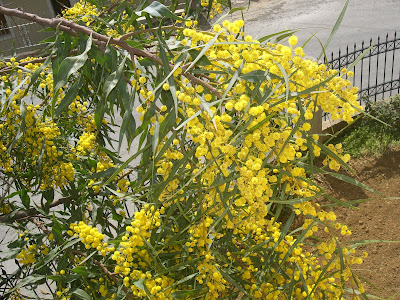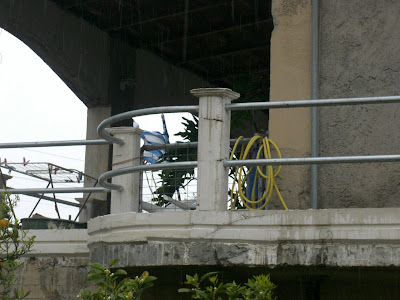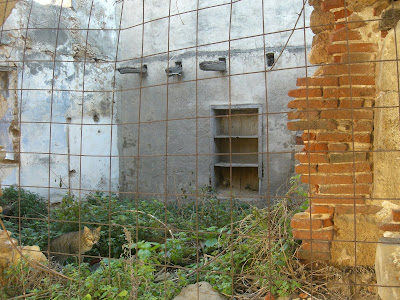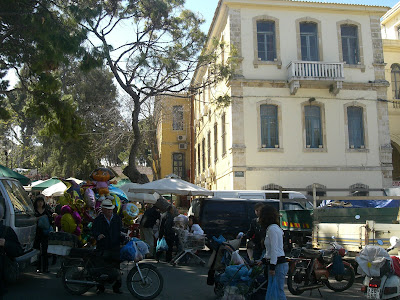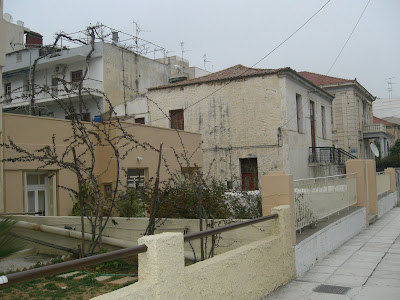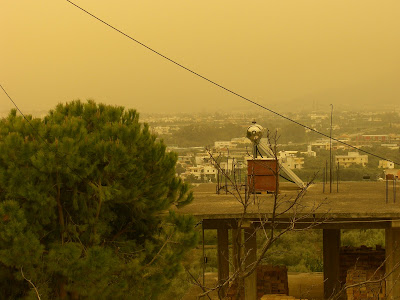

Today warrants two photos - the normal view from my house, and the paranormal. The yellow view was taken yesterday, at about the same time as the other photo, which was taken this morning. The yellow fog effect is the result of a climatic condition that we call 'red rain'. The southerly wind blew windstorms in the Sahara Desert. It carried the dust and sand over the Mediterranean Sea and strew it all over Greece, passing first from Crete, and on to the Peloponese and Macedonia. It reached as far as Turkey. Thankfully, it did not rain; the sand and dust stayed in the air, and blew across the rest of Greece and beyond. Had it rained, everything the red rain fell on would have been tinged with the colour of the sand and dust that was carried in the air. The next day, we'd have to get out the hoses and wash down our houses and cars, even the washing that was hanging on the line waiting to dry, because it would all be red with sticky dust. And another good thing was that the wind changed direction, otherwise, the sandy air would still be hanging over the town like a peasouper.
This kind of weather condition is known as Good Friday weather; on the day that Christ was crucified, the sky hung with a yellow haze over the city, as if doom was nearing. It really is scary weather. I remember a decade ago, on the 25th of March (ie about the same time this year), the sand fell with the rain so thickly, that the next day, not only was the town covered in red rain sand, but so were the snowy mountain peaks. Can you imagine what we were seeing:
grey rocky mountains, covered in snow, with a read peak at the top, which was the sand from the red rain? A sight worth photographing, if I ever see this again.
